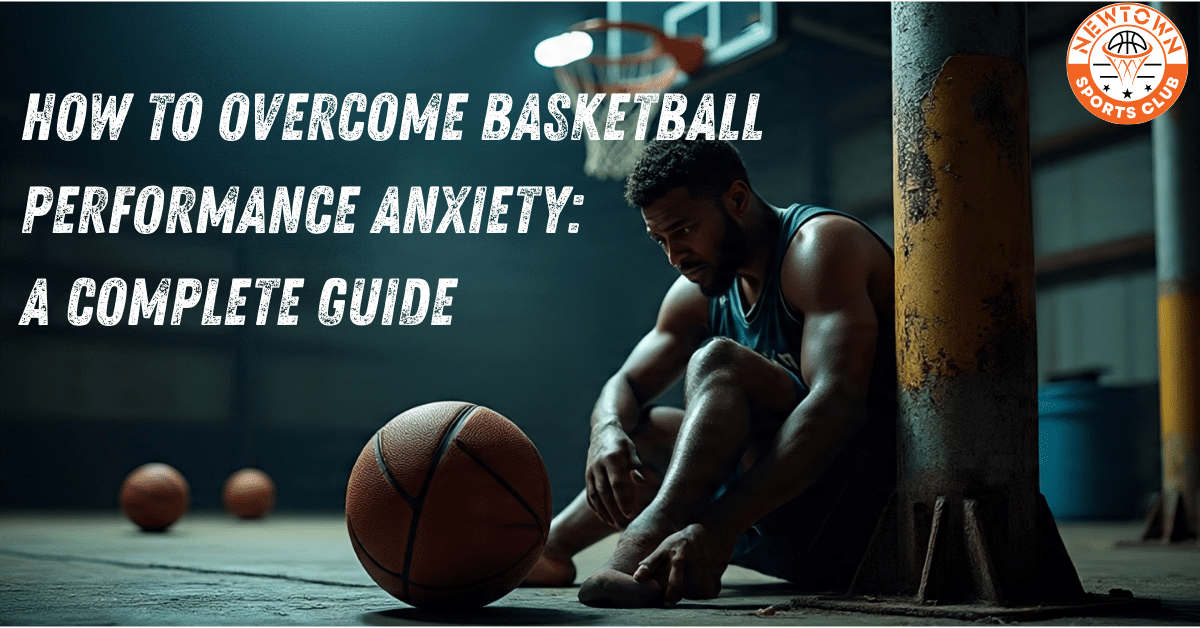
How to overcome basketball performance anxiety is a very question in our world. Many a times we have been lagging behind other for several reasons, our performance drops. But, does that mean we are not a good basketball player? We start doubting ourselves. See, basketball is not just about speed, skill, and shooting accuracy—it’s also about mental toughness. Many players, from school athletes to NBA stars, experience what’s called sports performance anxiety. I’ve personally felt it too—that racing negative thoughts before a game, the fear of missing a shot, or the voice in my head asking, “What if I mess up?”
The truth is, this Basketball Anxiety is normal. In fact, according to the American Psychological Association, nearly 30% of athletes experience athletic performance anxiety regularly, and basketball players are no exception. The key isn’t to avoid it but to learn how to manage it effectively. In this blog, I’ll share clear, proven strategies on how to overcome basketball performance anxiety, along with real-life examples that show you’re not alone in this battle.
Basketball anxiety is a form of sports performance anxiety that players feel before or during games. It’s more than a case of “butterflies”—it can affect how you think, react, and perform.
Think of it like this: a little bit of nerves can fuel your game, but too much can freeze you on the court.

Performance anxiety doesn’t look the same for everyone, but here are the most common anxiety symptoms:
If these feel familiar, you’re definitely not alone—many players quietly deal with the same challenges.
Basketball is fast-paced and competitive, so it’s no surprise anxiety can sneak in. Here are the main triggers of slowed sports performance:
👉 A 2021 study in the Journal of Sports Sciences found that high self-expectations were the biggest driver of performance anxiety among young athletes.
Now, let’s break down actionable ways to deal with basketball anxiety and negative thoughts so you can focus on what you love—playing the game.
Your mind can be your biggest ally if you train it right.
Benefit: Clears your head, lowers stress, and builds confidence.
When your body is prepared, your mind follows.
Benefit: A ready body creates a ready mind, making performance feel natural instead of forced.
Sometimes, anxiety is simply a matter of perspective.
Benefit: Reduces pressure and allows you to enjoy the moment rather than fearing it.
You don’t have to face basketball anxiety alone.
Benefit: Emotional support keeps you grounded and motivated.
Here is a guide on how to play basketball, a detailed comprehensive one. You can have a look at it, you might find some useful tips and tricks to do away with negative emotions and how to be a better player
Let’s bring this closer to reality with two inspiring stories:
These examples show that basketball anxiety doesn’t define you—it can actually push you to greatness if handled the right way.
When you take steps to manage anxiety, the results go beyond the court:
Life lessons: The same skills to manage anxiety in basketball also help in school, work, and relationships.
Basketball anxiety comes from fear of mistakes, high expectations, pressure, or nervousness in front of crowds.
Do breathing exercises, repeat positive affirmations, and stick to a consistent warm-up routine to settle nerves.
Yes. Research shows deep breathing lowers cortisol (the stress hormone) by up to 20% in athletes.
Definitely. Beginners often feel anxious as they adjust to competitive play. With time and experience, it usually decreases.
Yes. If anxiety interferes with your ability to play or enjoy the sport, working with a sports psychologist can help you build coping strategies.
Yes. If not managed, basketball anxiety can lead to inconsistent performances and even burnout. However, with proper techniques like visualization, breathing, and regular practice, you can turn anxiety into a source of motivation
Parents should avoid putting too much pressure on results. Instead, they can encourage effort, celebrate small improvements, and remind the child that mistakes are part of the learning process. A supportive environment reduces anxiety significantly.
Absolutely. Anxiety tends to peak before high-stakes matches, tournaments, or games with large crowds. The key is to stick to your routines and remind yourself that preparation matters more than the size of the event.
Along with breathing and visualization, exercises like progressive muscle relaxation, yoga, and meditation can calm the mind and body before games. Even light jogging or stretching reduces tension.
Yes. Listening to calming or motivational music before games can reduce stress hormones and put you in the right mental zone. Many professional players use music playlists as part of their pre-game routine
Not entirely—and that’s okay. Most players, even professionals, still feel some nerves before games. The goal isn’t to eliminate anxiety but to manage it so it sharpens focus rather than holding you back.
Shift your focus to what you can control—your effort, practice, and preparation. Learn from mistakes but don’t dwell on them. One bad game doesn’t define your abilities as a player.
Basketball performance anxiety is normal, but it doesn’t have to limit you. By practicing mental techniques, preparing physically, shifting your mindset, and leaning on your support system, you can learn how to overcome basketball performance anxiety and perform at your best.
If LeBron James and Michael Jordan faced anxiety and still became legends, so can you. Remember—nerves are just energy. Channel them, trust your training, and step onto the court knowing you’ve got this.

West Bengal National Coach (youth girl’s team)
Did you find our post helpful? Please share if you think it can help your friends, teammates and others.